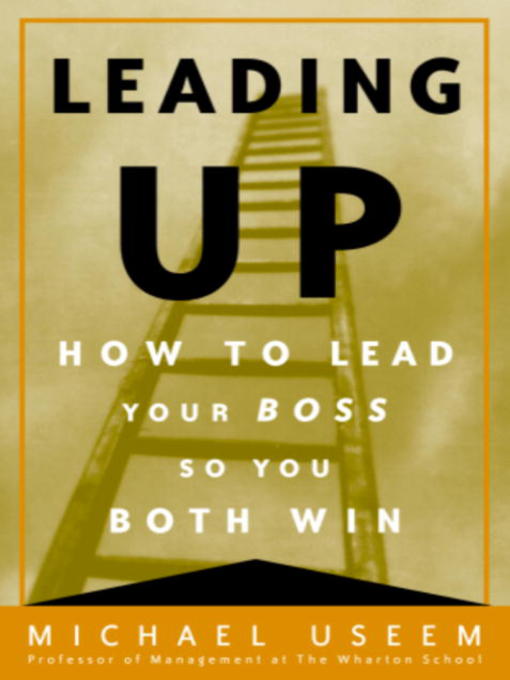- All Fiction
- Military Fiction
- Historical Fiction
- Mystery & Thriller
- Romance
- See all fiction collections
In Leading Up, Michael Useem offers instructive accounts of this vital and unexplored facet of leadership. Drawing on the extraordinary experiences of real people, Useem shows us what happens when those not in charge rise to the challenge, and also what happens when those who should step forward fail to do so:
* Civil War generals openly disrespected and frequently misinformed their commanders in chief, with tragic consequences for both sides.
* COO David Pottruck learned how to lead with his superiors at Charles Schwab & Co. in order to radically change Schwab’s core business.
* Had he been able to convince his superiors of the dire situation in Rwanda, United Nations commander Roméo Dallaire might have prevented the genocide that claimed 800,000 lives.
* The CEOs of CBS, Compaq, and British Airways concentrated on leading down when they needed to lead up to their boards, too. The result: All three were fired.
* U.S. Marine Corps general Peter Pace reconciled conflicting priorities while reporting to six bosses with varying agendas by keeping all of them informed and challenging them when necessary.
* Mount Everest mountaineers admitted they might have protected themselves and others from harm during a fateful ascent if only they had questioned their guides’ flawed instructions and decisions.
* Even in government, representatives often need to first strike a deal, then lead their bosses to embrace it, as examples from the United States and Argentina illustrate.
* No one ever had a tougher job of leading up than Old Testament prophets Moses, Abraham, and Samuel, who interceded with the ultimate authority.
Leading up is not the same as managing up. Managing up is running the office; leading up is taking the reins and exceeding what’s expected. As hierarchies everywhere shed much of their rigidity, upward leadership at all levels becomes more possible—and more necessary. Leading Up is a call to action. It asks us to build on the best in everybody’s nature, and it offers a pragmatic blueprint for doing so.
-
Creators
-
Publisher
-
Release date
December 18, 2001 -
Formats
-
Kindle Book
-
OverDrive Read
- ISBN: 9780676806519
-
EPUB ebook
- ISBN: 9780676806519
- File size: 950 KB
-
-
Languages
- English
-
Reviews
-
Booklist
November 15, 2001
In his first book, " The Leadership Moment" (1998), Useem used stories to provide examples of leadership in extreme situations. He does it again, now using diverse stories from throughout the ages to show both good and bad examples of "leading up." Useem includes leadership lessons to reinforce the value of the stories and highlight particular points. An integral ingredient throughout the leadership lessons is communications. Providing accurate data, not withholding information or being afraid to speak up to a superior, is part of what he perceives as essential. He realizes that there can be risk associated for the person trying to lead up, especially in a business that doesn't foster managers communicating risks, strategies, and values up to CEOs. In the last chapter, heties all this together in a formula for managers to use to lead up. Useem does provide insightful information for thoughtful consideration by managers and reinforces the importance of feedback and long-range thinking as necessary to keep the organization moving forward.(Reprinted with permission of Booklist, copyright 2001, American Library Association.)
-
Formats
- Kindle Book
- OverDrive Read
- EPUB ebook
subjects
Languages
- English
Loading
Why is availability limited?
×Availability can change throughout the month based on the library's budget. You can still place a hold on the title, and your hold will be automatically filled as soon as the title is available again.
The Kindle Book format for this title is not supported on:
×Read-along ebook
×The OverDrive Read format of this ebook has professional narration that plays while you read in your browser. Learn more here.

